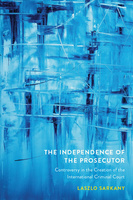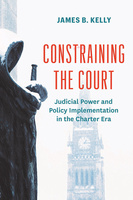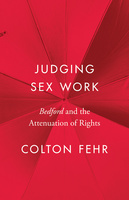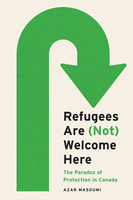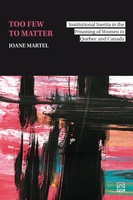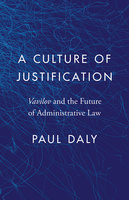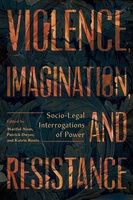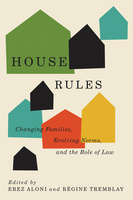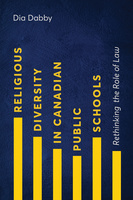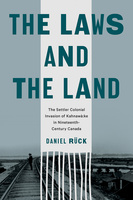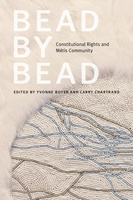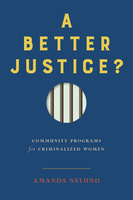The Independence of the Prosecutor
Controversy in the Creation of the International Criminal Court
This compelling investigation shows how an independent prosecutor, who can initiate investigations without states’ assent, became a key part of the International Criminal Court.
Constraining the Court
Judicial Power and Policy Implementation in the Charter Era
Constraining the Court considers what happens when a statute involving a significant public policy issue is declared unconstitutional – and government disagrees.
Suing for Silence
Sexual Violence and Defamation Law
Suing for Silence exposes the phenomenon of lawsuits whose purpose is to silence those who disclose sexual violence, revealing the gendered underpinnings of Canadian defamation law and its chilling effect on public discourse including formal reports of sexual violence.
Judging Sex Work
Bedford and the Attenuation of Rights
Judging Sex Work argues that a decision widely considered to be a victory for social justice weakened sex workers’ rights far more than it strengthened them.
Refugees Are (Not) Welcome Here
The Paradox of Protection in Canada
Refugees Are (Not) Welcome Here details the paradox of the simultaneous expansion and restriction of access to refugee rights in Canada.
Too Few to Matter
Institutional Inertia in the Prisoning of Women in Québec and Canada
A Culture of Justification
Vavilov and the Future of Administrative Law
A Culture of Justification examines how a groundbreaking case involving undercover spies and a man’s fight for citizenship helped the Supreme Court of Canada forge a consensus on the future of one of the most important areas in Canadian law.
Violence, Imagination, and Resistance
Socio-Legal Interrogations of Power
Family Law in Action
Divorce and Inequality in Quebec and France
Family Law in Action examines the inequalities produced by divorce and separation in France and Quebec.
Reckoning with Racism
Police, Judges, and the RDS Case
Reckoning with Racism is a riveting account of Canada’s most momentous race case, which drew in the country’s first Black female judge and spotlighted racist police practices.
House Rules
Changing Families, Evolving Norms, and the Role of the Law
House Rules takes a hard look at the law and norms governing family life, compelling readers to rethink entrenched inequalities in familial relationships and proposing ways to approach legislative solutions.
Religious Diversity in Canadian Public Schools
Rethinking the Role of Law
This comprehensive analysis of the legally complex relationship between religion and public schools will compel readers to reconsider the role of law in education.
The Laws and the Land
The Settler Colonial Invasion of Kahnawà:ke in Nineteenth-Century Canada
The Laws and the Land, an original and impassioned account of the history of the relationship between Canada and Kahnawà:ke, reveals the clash of settler and Indigenous legal traditions and the imposition of settler colonial law on Indigenous peoples and land.
Bead by Bead
Constitutional Rights and Métis Community
Bead by Bead lays bare the failure of judicial doctrine and government policy to address Métis rights, and offers constructive insights on ways to advance reconciliation.
A Better Justice?
Community Programs for Criminalized Women
Do community programs offer an effective alternative to imprisonment for women within the criminal justice system? A Better Justice? sets out the case.

